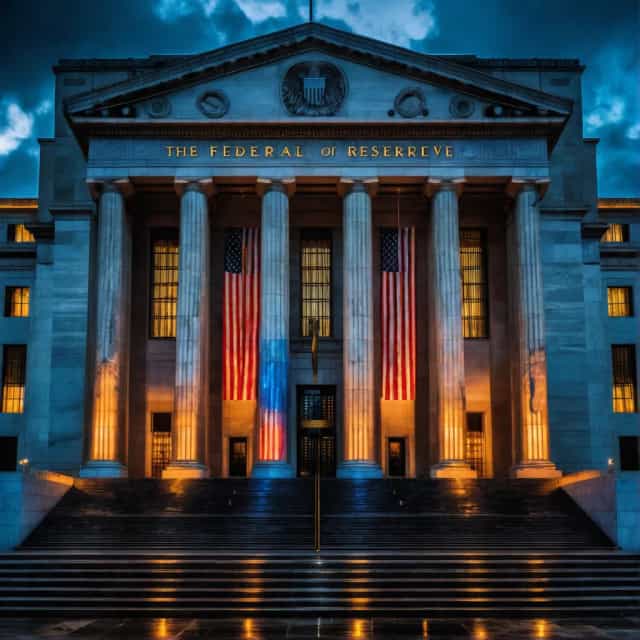
출처: Block Media
South Korea's Democratic Party Plans Financial Regulatory Overhaul: Dissolution of Financial Services Commission Raises Concerns
Proposed Financial Regulatory Restructuring Sparks Debate
The South Korean Democratic Party has unveiled a sweeping proposal to reorganize the nation’s financial regulatory framework by dissolving the Financial Services Commission (FSC) and transferring its primary roles to the Ministry of Economy and Finance (MOEF). This proposed overhaul, championed by Kim Byung-ki, the party’s floor leader, aims to streamline policy coordination but has drawn sharp criticism for potentially disrupting regulatory consistency—particularly in digital asset governance.
As a pivotal component of the plan, digital asset policy oversight would shift from the FSC to the MOEF. This raises significant questions about continuity in an evolving sector marked by rapid innovation and heightened global competition.
Core Elements of the Legislative Proposal
The draft legislation outlines the following transformative changes:
- The complete abolition of the Financial Services Commission.
- Assignment of financial policy jurisdiction to the MOEF, with a newly established Financial Supervisory Commission taking over oversight functions.
- Transfer of operational roles to the Financial Supervisory Service (FSS) and the creation of an independent Financial Consumer Protection Agency.
Under this new structure, the MOEF, led by the Deputy Prime Minister for Economic Affairs, would consolidate financial policymaking with its existing responsibilities in areas like taxation, economic development strategies, and public finance. Oversight and supervision would be managed by the Financial Supervisory Commission, supported operationally by the FSS and the Financial Consumer Protection Agency.
Proponents within the Democratic Party argue that this redistribution of authority will resolve redundancies and inefficiencies currently caused by dividing domestic and international financial policy management between different government agencies. “Concentrating policy under one roof and delegating supervision elsewhere will improve regulatory clarity and independence,” party representatives assert.
Uncertainty Looms Over Digital Asset Policy
However, this reorganization raises concerns about its impact on the digital asset market in South Korea. A central provision of the proposal shifts the responsibility for enacting South Korea’s "Digital Assets User Protection Act" from the FSC to the MOEF. Furthermore, the Virtual Asset Committee—established in November 2022 as a policy advisory body under the FSC—would also report to the MOEF moving forward.
This transition is seen by many as risky during a critical period for cryptocurrency regulation. The Virtual Asset Committee is actively involved in developing industry standards, including market participation rules, custodial frameworks, and measures to protect investors. Market participants worry that transferring this authority to the MOEF could halt progress.
“The digital asset industry requires cohesive governance and stable policymaking to flourish. Fragmenting responsibility at such a decisive time could undo hard-won progress," an industry expert warned. The FSC, for instance, had planned to propose comprehensive blockchain legislation, including provisions addressing stablecoin frameworks, later this year. Questions remain about whether this reorganization would delay those plans.
A legal expert further cautioned, "The FSC’s holistic approach has facilitated seamless oversight—from licensing exchanges to addressing systemic risks. Splitting this authority between the MOEF and the new Financial Supervisory Commission could compromise accountability and shake market trust."
The Evolving Role of the Financial Supervisory Service
The Financial Supervisory Service, a central regulatory authority, is also poised to undergo dramatic changes. Under the proposed law, the FSS would become an implementer of policies drafted by the future Financial Supervisory Commission. Its classification as a public institution would subject it to the MOEF’s control over staffing and budget allocations starting January 2, 2024.
Opponents argue this diminished independence could erode the FSS’s ability to respond effectively to financial-sector dynamics. Kim Sang-bong, a professor at Hansung University, articulated these concerns during a parliamentary hearing, stating, "The rise of big-tech payment ecosystems and the proliferation of foreign stablecoins demand agile oversight. Splintering policymaking from supervisory execution could open significant gaps in regulation."
Kim also criticized plans to convert regulatory bodies into public institutions, cautioning that bureaucratic oversight might hinder their operational efficiency. "Financial sector supervision requires expertise and quick adaptability—qualities that are unlikely to thrive under bureaucratic bottlenecks," he added.
O Chang-hwa, a high-ranking FSS official, echoed these sentiments, stating, "Separating prudential oversight from conduct regulation creates operational ambiguities. This redundancy could ultimately place an undue regulatory burden on financial institutions."
Risks for South Korea’s Financial Market
While reform advocates argue that the restructuring will optimize systemic efficiency, a diverse group of stakeholders—including representatives from the financial, legal, and technology sectors—express concern that the fragmented approach could destabilize policy effectiveness and weaken both domestic and global investor confidence.
The proposed changes come at a critical time for South Korea, which has positioned itself as a regional leader in financial innovation. With the global community closely monitoring developments, the interplay between innovation and regulatory stability will be pivotal. Ensuring that structural reforms enhance, rather than compromise, institutional effectiveness is set to be the defining challenge for South Korea’s lawmakers.
As the debate over the legislation unfolds in the coming weeks, market participants domestically and abroad will be looking for signs of clarity in how South Korea manages its financial regulatory transformation during this pivotal juncture.










